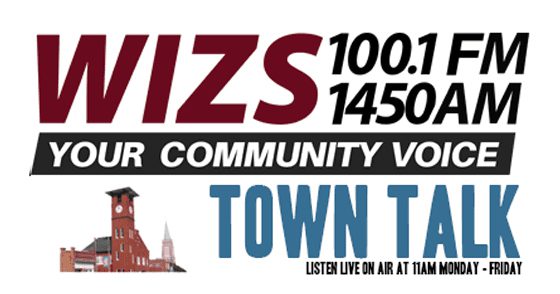Psychotherapist Chris St. John has the professional experience and educational credentials to provide his clients with valuable feedback as they receive therapy, but he can relate to those veterans and first responders on a different, more personal level: He is a veteran and he has been a first responder, both of which form a special, unspoken connection with patients who have a similar background.
St. John works in Denver, Colorado and he spoke by phone to John C. Rose and guest co-host Phyllis Maynard on Tuesday’s Town Talk about his practice and his special interest in the work of Carl Jung.
“Talk therapy isn’t for everybody,” St. John acknowledged. There are many different ways to get counseling, and talk therapy is just one of the ways that a therapist can offer help.
St. John is a Navy veteran who also has experience as a first responder, so he fits right in to the
Former Active Duty: Still Boots on the Ground category of the recurring Town Talk series.Ju
St. John discovered Jung’s work during his college years and subsequently became certified in Jungian theory. Jung was a Swiss psychiatrist and psychoanalyst who founded analytical psychology in the early part of the 20th century.
“I take pieces from others all the time,” he said. “I reference others and apply it into my work.”
He takes pride in tailoring his therapy to the individual, and stresses to patients the idea that they are not alone as they seek therapy.
“There is some form of therapeutic intervention for everybody,” he said. His experiences help offer to patients a unique perspective that can help them adapt and cope, he said. And it’s those experiences in the military that provide an extra connection for his military veteran clients.
“Words don’t have to be spoken (in) how you connect to another veteran,” St. John said. “I can speak the lingo and have the general understanding…(they) connect with me almost immediately.”
The two-way trust can be established quickly, he noted. “We’ve earned our stripes and we’re connected,” he said.
St. John said he knows first-hand about what he called “compassion fatigue.” First responders can experience compassion fatigue as they continue to focus on the health and well-being of others and have little energy to take care of their own needs.
“Self-care is not selfish,” he said. If you don’t take care of yourself, there’s no way you can continue to help others.
When do you know it’s time to seek professional help?
“It’s important that you don’t wait,” St. John said. “The best time to see therapy is when you don’t need it.”
Learn more at http://www.christopherstjohntherapist.com/
Click Play!
